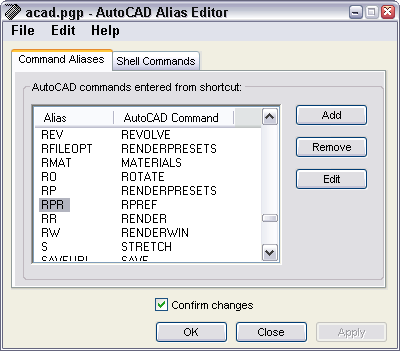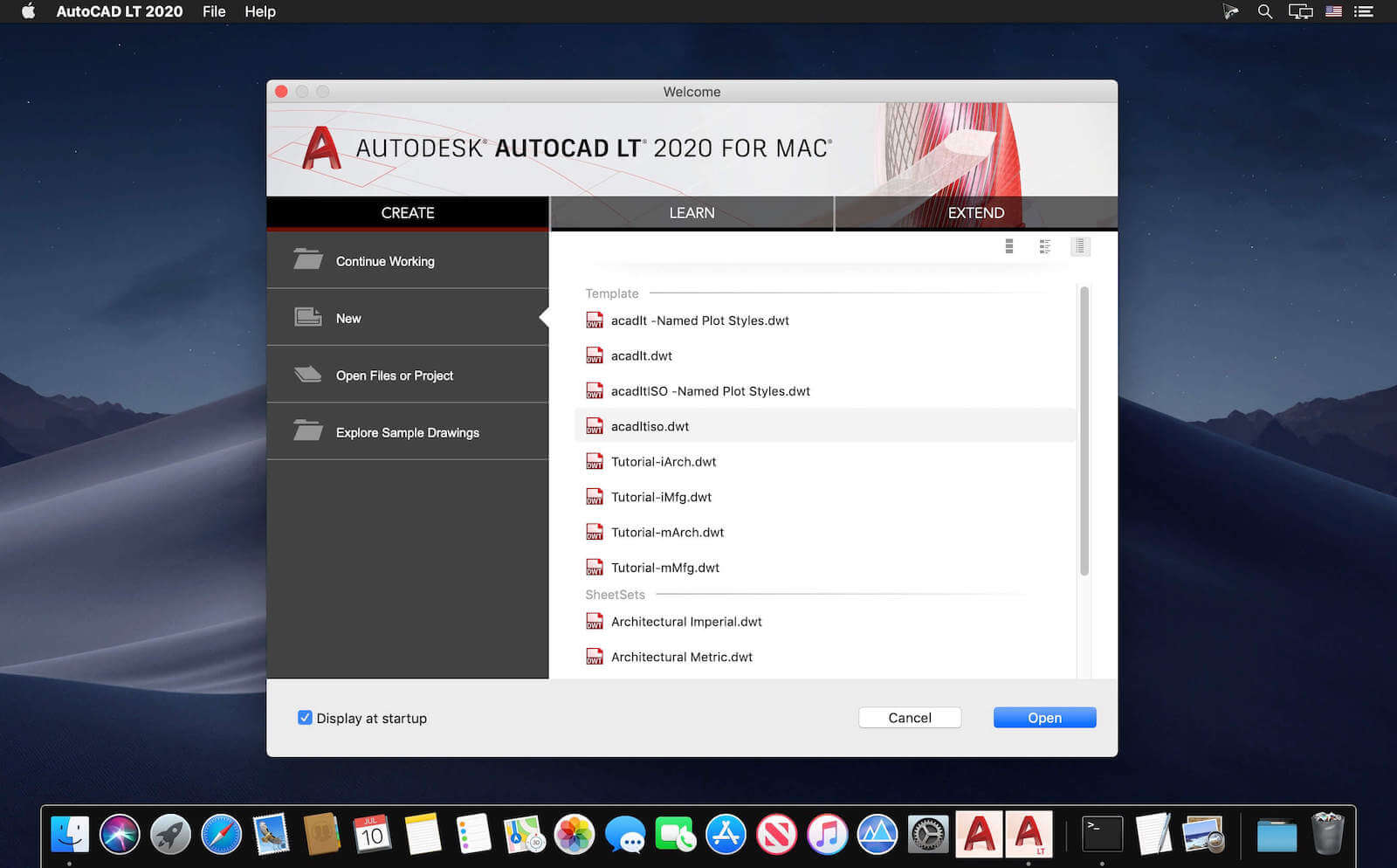The dimension panel consists of other common commands widely used in our drawing.
To access such commands, follow the below steps:
- Click on Annotate on the ribbon panel.
- Click on the drop-down list of the Dimension option, as shown below:
- The drop-down list will look like the below image:
Let's discuss each command in detail.
Toggle General Features. Opens or closes the Tool Sets palette. Opens or closes the. LAYER (Command) Products and versions covered. AutoCAD for Mac 2020. 0 contributions. In-Product View. ADD TO COLLECTION. Visit AutoCAD for Mac forum. AutoCAD for Mac Ideas. Share and vote on ideas for future product releases. Find Service Providers. Mac OSX Security Update 2020-005 prevents Autocad LT 2021.1 for MAC starting by bruce Monday Latest post yesterday by bruce 10 Replies 116 Views.
- Tolerance
The tolerance command is used to create geometric tolerance with the dimensions. We can also enclose geometric tolerance in a feature control frame, which can be created with a leader such as MLEADER, LEADER, and TOLERANCE.
Consider the below image:
Let's understand the process of creating geometric tolerance.
The steps are listed below:
1. Click on the Tolerance
Or
Type TOLERANCE on the command line or command prompt and press Enter.
A dialog box will appear, which will look like the below image:
2. Specify the values of tolerance.
3. Specify the height.
4. Click on the OK button at the bottom.
5. Specify the Tolerance location on the viewport.
Thus, dimension tolerance will be created.
- Oblique
The Oblique command is used to arrange the extension of linear dimensions in an oblique way. It is often used when an extension line of a particular dimension conflicts with other dimensions.

The Oblique angle is calculated from the X-axis of the UCS.
Consider the below image:
Let's understand with an example. Consider the below dimension:
The steps are listed below:
1. Click on the Oblique
Or
Type DIMEDIT on the command line< type O< press Enter.
2. Select the object. We can also select multiple dimensions.
3. Press Enter.
4. Enter the Oblique Here, we have specified an angle of 30.
5. Press Enter.
The Oblique dimension will be created, as shown below:

We can also verify the specified angle, as shown below:

- Text Angle
The Text Angle command is used to rotate the text in the dimension by the specified angle, as shown below:
Let's understand with an example.
Consider the below dimension:
The steps to apply such dimensions are listed below:
- Click on the Text Angle
Or
Type DIMTEDIT on the command line <press Enter. - Select the dimension.
- Type A or Angle and press Enter.
- Specify the angle for dimension text.
Here, we have specified an angle of 50. - Press Enter.
The Text Angle dimension will be created, as shown below:
- Left Justify
It justifies or shifts the dimensions to the left. It works only for linear, radius, and diameter dimensions. Let's understand with an example.
Consider the below dimension:
The steps are listed below:
- Click on the Left Justify
Or
Type DIMTEDIT on the command line< press Enter. - Select the dimension.
- Type L or Left and press Enter.
The dimension will shift to the left.
It is shown in the below image:
- Center Justify
Commands For Autocad Macro
It justifies or shifts the dimensions to the center. It works only for linear, radius, and diameter dimensions.
Let's understand with an example.
Consider the below dimension:
The steps are listed below:
- Click on the Center Justify
Or
Type DIMTEDIT on the command line < press Enter. - Select the dimension.
- Type C or Center and press Enter.
The dimension will shift to the center.
It is shown in the below image:
- Right Justify
It justifies or shifts the dimensions to the right. It works only for linear, radius, and diameter dimensions. Let's understand with an example.
Consider the below dimension:

The steps are listed below:
- Click on the Right Justify
Or
Type DIMTEDIT on the command line < press Enter. - Select the dimension.
- Type R or Right and press Enter.
The dimension will shift to the right.
It is shown in the below image:
- Override
The Override command is used to control the override or clear the override of the system variables and the selected dimensions.
The shortcut command is DIMOVERRIDE.
Buy Autocad For Mac
Autocad Mac Torrent
